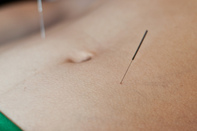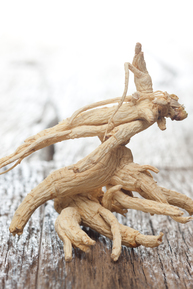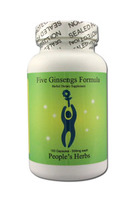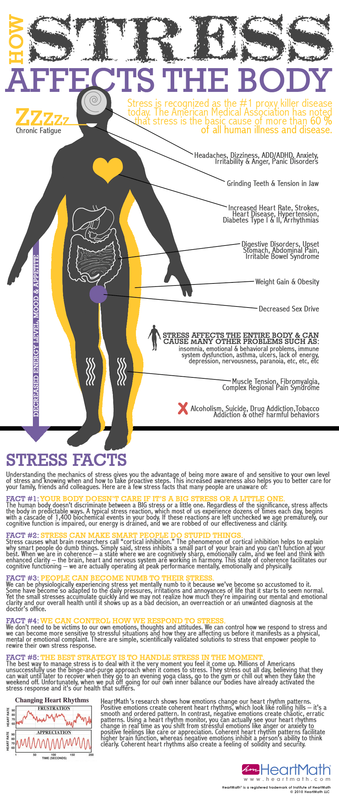
Liver health is a topic for much speculation on the glorious interweb - how do we cleanse the Liver? How do we protect the Liver? Why should we care about our Liver? Its kind of endless, but the Liver is very important, both physically and energetically, and kind of amazing due to its regenerative abilities (if you donate your liver for a transplant, they commonly take anywhere from 40-60%! You regenerate most of what’s taken over time and continue to function just fine).
Despite all the chatter, however, its Springtime which is the time of the Wood element in Chinese Medicine - the best time of year to strengthen the Liver and I want to honor this time by talking about one of my favorite herbal remedies - Xiao Yao Wan, also known as Free and Easy Wanderer. So, are you ready to feel Free and Easy? Read on to learn more about Liver Qi, Xiao Yao Wan and how Acupuncture works to strengthen this amazing organ. Liver Function in Chinese Medicine
In Traditional Chinese Medicine, the Liver is responsible for smooth flow in the body. The smooth flow of Qi, the smooth flow of your emotions, the smooth flow of menstruation and the smooth flow of digestion. Its primary job is to harmonize the system and keep everything copacetic.
When things are not flowing well, however, due to external factors like poor diet and stress or internal factors directly contributing to poor digestion or liver health like Hepatitis, IBS, fatty liver disease etc., the Liver can become impaired in doing its job and become stagnant. Since the Liver’s energetic function affects so many actions in the body, Liver Qi Stagnation can be part of many different ailments. It can contribute to:
Xiao Yao Wan - Free and Easy Wanderer
Xiao Yao Wan is a relatively simple formula that focuses on the specific harmony between the Liver and the Spleen. In Chinese Medicine the Spleen is primarily responsible for digestion, not the stomach (remember this is energetically, not physically) and this includes transforming food and drink into blood for the bodies’ use. The Liver then governs menstruation specifically and holds blood as part of its harmonizing function.
When the Liver Qi becomes stagnant, it often attacks the Spleen instead of helping it with digestive function. This specifically results in feeling sensitive to stress and in certain patterns of IBS, PMS, menstrual cramping, and loose stool associated with stress. Xiao Yao Wan addresses this pattern by combining herbs that move Liver Qi (mint, Buplerum), move blood (angelica, peony), tonify the Spleen (astractylodis), Drain Dampness to improve Spleen function (poria) and harmonize (ginger, licorice). It is suitable for men or women who feel stressed out or out of balance, or for women who have PMS especially with cramps, water retention and irritability. Its also excellent for people who want to protect their Liver against upcoming stressful events. This remedy is not indicated for people who are pregnant or nursing, and if you have Hepatitis and are on interferon therapy you should check with your provider - Buplerum or Chai Hu is a powerful anti-inflammatory for the Liver and can change interferon dosing. Acupuncture for the Liver
Herbs are highly effective on their own, but always go a little further when combined with Acupuncture. Acupuncture for the Liver varies person by person depending on their individual presentation. Do they show more heat as a result of long standing Liver Qi Stagnation? Do they show more emotional distress or digestive symptoms? And how do they sleep?
Each of these things will change any individual person’s point prescription, but since the function of the Liver is to balance and harmonize body function, the Acupuncture treatment for the Liver focuses on the same. We can use points to move Qi, to move blood, to strengthen Liver function and - just like Xiao Yao Wan - to harmonize. Acupuncture works by balancing the imbalance shown as a result of Liver distress to improve Liver function and reduce associated symptoms. Ear points are especially effective for the stress component of Liver Disharmony and for promoting Liver Detoxification. They can be stimulated with Acupuncture and with Acupressure after the fact using ear seeds or ear beads to extend treatment. AND you can even learn to do it yourself as a take home therapy! Ready to be Free and Easy!
As mentioned above, Xiao Yao Wan is pretty easy to find, but Plum Flower is my favorite brand of traditional remedies. Plum Flower has a great reputation, is GMP Certified and comes in a traditional teapill form for easy absorption. You can also find them in my office, at OCOM and at Whole Foods or New Seasons.
As for Acupuncture - you can book in online anytime or, if you have questions, comment below or come in for a consult! Until then - meditation, movement and plenty of water are the orders of the day to promote Liver health and wellness!  Spring in Chinese Medicine is governed by the Wood element. A time of renewal, creativity, growth and as with all things in nature - a time of birth. Spring, therefore, is an excellent time to focus on fertility. So ladies, if you’re thinking about having a baby in the coming year or working on getting pregnant listen up. This one’s for you! Acupuncture To Increase FertilityAcupuncture is excellent support for women who are trying to get pregnant. Does Acupuncture work? 3,000 years of clinical history using Acupuncture to support natural fertility would definitely stand to support its effectiveness! The question, however, is how does Acupuncture work to increase fertility and why would you choose this intervention over another when trying to conceive? Here’s the skinny: Acupuncture works by balancing the bodies’ energetic flow to create harmony and well being. When it comes to fertility and pregnancy in particular, Acupuncture treatment focuses on regulating menstruation and supporting ovulation. Specifically, the menstrual cycle is broken up into four phases in Traditional Chinese Medicine that must be harmonized for optimal fertility. Different points and herbs are chosen during each phase depending on your individual presentation to optimize fertility.
Acupuncture vs. Western Fertility TreatmentsAcupuncture is not as strong as western fertility treatments such as Clomid, IUI or IVF, but it is a low cost non-pharmaceutical option to optimize your fertility AND it can be used in conjunction with any of these therapies to enhance the effectiveness of Western intervention. Of course IMHO, Acupuncture should always be a first go-to choice for trying to improve fertility and increase the likelihood of pregnancy because it is low cost, effective and has no side effects apart from the very rare and occasional bruise. Acupuncture during Western fertility treatments is excellent because not only can it improve outcomes, but it can also decrease the effects of stress and anxiety that often follow intense hormonal therapies and invasive medical procedures. How Much Treatment Does It Take?For every woman, the specific course of treatment will vary slightly. The longer you have been trying to conceive and have been unsuccessful, the longer an initial course of treatment may last to achieve your goals. For general fertility support, beginning approximately 3 months prior to trying to conceive is recommended, and continuing through the first trimester to decrease the likelihood of miscarriage is also ideal. Thereafter, continuing 1-2x/month to treat the regular discomforts of pregnancy such as heartburn, insomnia, back pain and emotional instability is recommended. If you have been trying to conceive for a long time and have been unsuccessful, and longer course of 6 months may be necessary though it is recommended to continue trying throughout the duration of treatment. Interested in Learning More? Questions? Comment Below!Acupuncture for fertility and pregnancy has a long history with many babies born along the way! I myself have two beautiful children and credit a combination of Acupuncture and Naturopathic care for my relatively easy conception. While I did not have any known barriers to fertility, I did have a suspected ovarian cyst based on my increasingly irregular periods as well as a high stress period before we wanted to conceive. I spent 6 months doing regular Acupuncture and naturopathic care (supplements, diet in addition to Chinese herbs) and I got pregnant on our first try! When we were ready for another almost 2 years later, it happened just as fast. I couldn’t be more grateful or lucky because I know first hand through my work how hard conception can be for many of us, but I can say quite definitively that good preparation and regular treatment can greatly boost your chances of success.
Thanks for tuning in! Please ask questions or comment below and I’ll be happy to respond at my earliest opportunity. Yours in health, ~Rebecca  Ginseng is a very important herb in Chinese Medicine and is often touted in the West as an energy tonic to combat fatigue. Sometimes called a “King” herbal for anti-aging in particular according to Traditional Chinese Medicine (TCM), it is classically known to have a number of benefits including:
Will it hurt you? Likely not - Ginseng in concentrations sold over the counter is rather mild, but you won’t necessarily see a health benefit either. If you DO match the temperature of Ginseng to your constitution, however, and take a recommended dose from a qualified practitioner, the health benefits can be incredible. So, how do you choose? Here’s a quick lesson to help you find the right type of Ginseng for you. Ginseng 101 - Choose the Right Ginseng For YouFirst we have to back up just a smidge and talk about Chinese Herbal Medicine. The firsts texts illuminating Chinese Herbal Medicine dates back to 300 to 200 B.C.E., specifically the Shennong Bencao Jing also known as “The Classic Of Herbal Medicine.” In Chinese Herbology, herbs are categorized by Nature, Flavor, Meridians Entered (energetically) and Action or Specific Function. Ginseng, specifically, enters the Kidney, Spleen, Heart and the Lung meridians. It is a tonic herb (meaning it is used to strengthen the body), is both slightly sweet and slightly bitter in flavor and, depending on the variety, can be cool or hot in nature. This means that energetically speaking, Ginseng is used to strengthen these organs and the channel areas associated with them. Ginseng is classically used to treat fatigue, asthma, diabetes, chronic digestive issues, irritability, heart irregularity, and as an aid to promote longevity and youthfulness. Choosing the right Ginseng for you is about matching the temperature in particular. If you have a colder constitution - i.e. you are prone to feel cold, especially in your core and at night - a hotter temperature Ginseng is right for you. If you have a warmer constitution - a tendency to sweat, to heat up easily, night sweats or hot flashes - a cooler temperature Ginseng is the order of the day. So which is which? American Ginseng (Xi Yang Shen) is COOL in nature, and best suited to warmer constitutions. If you’re a menopausal woman with hot flashes and night sweats, this is for you. Chinese and Korean Ginsengs (Hong Ren Shen) are HOT in nature, and best suited to cooler constitutions. If you feel cold all the time, this is an excellent choice. Korean Ginseng is slightly hotter that Chinese Ginseng but only just. If you feel NEUTRAL in temperature, a balanced mix of the two is ideal. Ginseng from a Western PerspectiveA number of clinical trials in the west have proven that the ginsenosides (active compound) inside Ginseng have promising medicinal properties. In particular, Ginseng has proven to:
In Conclusion Modern research is catching up with the Chinese Medicine designation of Ginseng as a “king herbal” remedy. Indeed, it is almost recognized as a cure-all by Western Science as well, but it is important to take the right dose and the right temperature for your constitution. A minimum of 300mg per day is recommended as a therapeudic dose, up to 1g depending on your individual needs. The only contraindication for Ginseng is HYPERTENSION. In some cases of high blood pressure, Ginseng - hot variety Ginsengs in particular - are not recommended. For this reason, its always ideal to check with a qualified practitioner before beginning a ginseng regime. My favorite Ginseng combination is People’s Herbs Five Ginsengs Formula. Is is a balanced preparation of 5 different strains of Ginseng and Pseudo Ginseng (another herb with similar health benefits - talk for another time!) in high quality ethically sourced varieties. I generally prescribe 2 caps 1-2x/day depending on fatigue levels. And yes - I carry it in office all the time! I hope you found this post interesting and that it helped you understand why some Ginsengs might be better for you than others, and I hope you’ll consider speaking with a practitioner and adding Ginseng to your self care regime too! Until next time, ~Rebecca The further along I get in my practice, the more I feel like stress and inflammation are the literally the root of all evil in the body. Indeed, even the American Medical Association notes stress as the basic cause of more than 60% of all human illness and disease. Luckily for us, there is much we can do about it, and Acupuncture is rising to the top of the list thanks to modern research illuminating what 3,000 years of tradition and practice can do for your health! The most recent rat studies show two specific things:
This is a pretty compelling reason to make Acupuncture part of your normal health routine. Never mind that it is deeply relaxing and can help decrease pain, control allergies, improve sleep, improve digestion, reverse and slow the signs of aging, decrease depression and anxiety, and all sorts of other things - frankly I believe that stress reduction, and by way of stress decreased inflammation, is truly one of the key things Acupuncture does for your health and a great reason to get it! Try It, You Might Like It!If you’re ready to try it out, or want to come in for a free consult, please book in anytime. You can book online 24/7 using the “Book Now” button at the top of the page, or comment here or email me with questions.
Until next time, ~Rebecca  Since I started my journey to become an LAc, I have always practiced what I preach in every area of my life (eating whole foods, taking herbs and supplements, regular exercise, acupuncture/massage/meditation) except my sugar consumption - a holdover from my stress response patterns and an eating disorder of long past. I have always been upfront with my patients regarding my struggle. I probably eat 80% Paleo and 20% flex but you know, a lot of that 20% is chocolate and gluten free snacks and sweets. This year, I decided no more and I feel like I’ve learned so much along the way the past few months, and am so very lucky to have Chinese Medicine tools at my disposal to help “quit” sugar, I wanted to share for those of you also starting on this journey. There is so much to share, but here is a start. Read on to learn what sugar cravings say about you from a Chinese Medicine perspective and quick-start guide to what you can do about it: Sugar Craving - What it Says About Your Health in Traditional Chinese Medicine“Sweet” is a flavor in Chinese Medicine that is associated with the Earth element and the Spleen and Stomach meridians energetically. Herbs in the Chinese pharmacopia that are sweet in nature are often tonifying, or strengthening, for the Spleen especially. Craving sweet things, therefore, indicates that the Spleen is weak or out of balance and needs tonification or adjustment. (Lets see, how much of the US population falls in this category…) Chinese Medicine preaches all things in moderation - every flavor of herb and food as well. A little sweet strengthens the Spleen, a lot of sweet will damage it. Refined sugar in particular represents too much sweet and is not included as a substance which promotes health and wellness in TCM. Our Brains Love Sugar - We Must Retrain Your BrainOur brains love sugar - it is literally what they use for nourishment! Does this mean if we stop eating sugar our brains will shrivel and die? No no no - many many MANY things convert into sugar in the body. Truly, the sugar value of any given food isn’t the issue as much as “sugar handling” in the body is - i.e. what our body does with foods to convert them into forms we can use, and then how we use those nutrients. But back to the brain - we’re hard wired to like sweet because in paleolithic times, sweet meant ripe, ready and high calorie which hunter-gatherers needed for survival. A few extra pounds of insulin-induced body fat around the waistline would ensure survival during a harsh winter. Sweet things cue the same dopamine response that pleasant activities and cocaine stimulate in the brain - sweet is desired, soothing, addictive. The good news is that our brains and tastebuds (as an extension of the brain, really) are trainable. Just like taking opiate pain medications can be addictive, and can cause “tolerance” meaning that we get used to a certain dose and it doesn’t work anymore so we need more (welcome to the prescription drug addiction cycle!), the same is true of sugar and our tastebuds. If you can take a break from eating overly sweet things, your tastebuds will down-regulate, or adjust down, and something that tasted “meh” before, will taste sweeter than sweet. That whole apple or orange will taste A-MAZING curbing your craving for sugar sugar sugar. The challenge, therefore, is how to take a break and not go insane. Stopping a regular sugar habit is like quitting smoking or high volumes of coffee - it sucks, it isn’t easy, there’s no perfect time to do it - but the rewards are so many fold - decreased inflammation and pain, improved sleep, stabilization of emotions, weight loss, decrease in heart disease risk - you’ll likely reach a point where you realize you have to do it. Case in point - five days after I quit sugar, I’d lost 5 pounds, not changing ANYTHING else about my diet or exercise habits - and a kiwi became the most luscious thing I could ever imagine eating. Chinese Medicine and Quitting Sugar“Quitting” sugar is all the rage right now and frankly, I think it should be. But truly “quitting” is kind of impossible because sugar is in so many things, and being really rigid with yourself in any long term plan can be ill advised, leading to explosion and binging. I prefer the term going “low sugar” because I think that is more accurate. However you slice it, its really the same - it means cutting out as much added sugar from the diet as possible, and being mindful of two things - what foods contain sugar (even chicken broth, chips and marinara sauce usually contain added sugar) and what foods convert to sugar in the body (like carbohydrates) - so you can make conscious decisions about your consumption of them as well. Here is the nitty gritty of this process - it can take 8 weeks for your body to fully adjust to a “low” sugar diet. The first 10-14 days are the hardest, but even after only 4-5 days your tastebuds will start to adjust and everything will taste sweeter. If you can persevere through those first two weeks, and do the individual work you need on attitude around food and reward, you can make it and it can be a positive healthy lifelong change. Here is a plan:
Questions? Ask me!If you have questions or want to know more please don’t hesitate to call or email me any time. There is so much out there about sugar, its easy to find, but sometimes it is nice to have a qualified, well trained and personally experienced professional to help you! I’ve been there, and I would love to help you learn more and be part of your support team if you chose to undertake this journey.
Feel free to reply in the comments section below with some of your favorite resources or information about your personal journey with sugar. If you’re interested in Acupuncture for sugar cravings, free consultations are always available. You can book online 24/7 using the “Book Now” button at the top of the page! Until next time, ~Rebecca |
AuthorsRebecca M H Kitzerow is a Licensed Acupuncturist practicing in La Center, Washington. With over a decade of experience she has won 10 Nattie consumer choice awards from Natural Awakenings Magazine since 2014. Archives
July 2024
Categories
All
|
Photos from Hey Paul Studios, BeGreen_Studio, Pawel Pacholec, 1950sUnlimited, toulupaliaqaz, Joelk75, OnTask, Robert Gourley, cnu_sports, Mitya Ku, wuestenigel (CC BY 2.0), FootMassagez, 401(K) 2013, Mariana Heinz, @EdwardTerry, fishhawk, liverpoolhls, torbakhopper, Boemski, dolomitibl, Driscolltheque, Dave n Laura, Vaping360, MVWorks, Life Mental Health, MVWorks, mikefats, Scot Nelson, jfl1066, wZa HK, ruurmo, Guadalupe Cervilla, Army Medicine, GViciano, torbakhopper, adrigu, Saulo Cruz, Ben Cumming, marniejoyce, kcxd, JasonCorey, kanenas.net, Live to Create Photography, gm.esthermax, Unique Hotels Group, Zenspa1, mysiana, Tobias Lindman, Leader Nancy Pelosi, Kristoffer Trolle, swanksalot, Bill Selak, Parker Knight, stimpsonjake, Gedankensprudler, SuperFantastic, tonynetone, marniejoyce, JeepersMedia, Illusive Photography, 'Ajnagraphy', Iban Torras, scotted400, gtall1, dvanzuijlekom, BPPrice, Skley, torbakhopper, Renato Ganoza, anka.albrecht, QUOI Media, Public Domain Photos, Instant Vantage, Victor Tongdee, Free Grunge Textures - www.freestock.ca, sportEX journals, Nadja Tatar, angela n., marniejoyce, MVWorks, Karolina Kabat, Thomas Fisher Rare Book Library, UofT, ginnerobot, tracilawson, haven't the slightest, My Photo Journeys, Pierre Willemin, Florena_Presse, SuperFantastic, colindunn, zzkt, TraumaAndDissociation, ER24 EMS (Pty) Ltd., shixart1985 (CC BY 2.0), marniejoyce, Tomás Fano, freestock.ca ♡ dare to share beauty, Archives New Zealand, Jaykhuang, airdrie.m, Go-tea 郭天, OnTask, wuestenigel, focusonmore.com, Disney | ABC Television Group, Andrew Gustar, Didriks, ConstructionDealMkting, charlywkarl, barnimages.com, Lel4nd, runwaypilates, michaelstephanfotografie, McLevn, TraumaAndDissociation, eLife - the journal, Lars Plougmann, wuestenigel, shixart1985, boviate, davis.steve32, kevin dooley, @the.photoguy (insta), frederic.gombert, Feathering the Nest, Victor Tondee, shixart1985, wuestenigel, Joe K Gage, kennethkonica


 RSS Feed
RSS Feed
